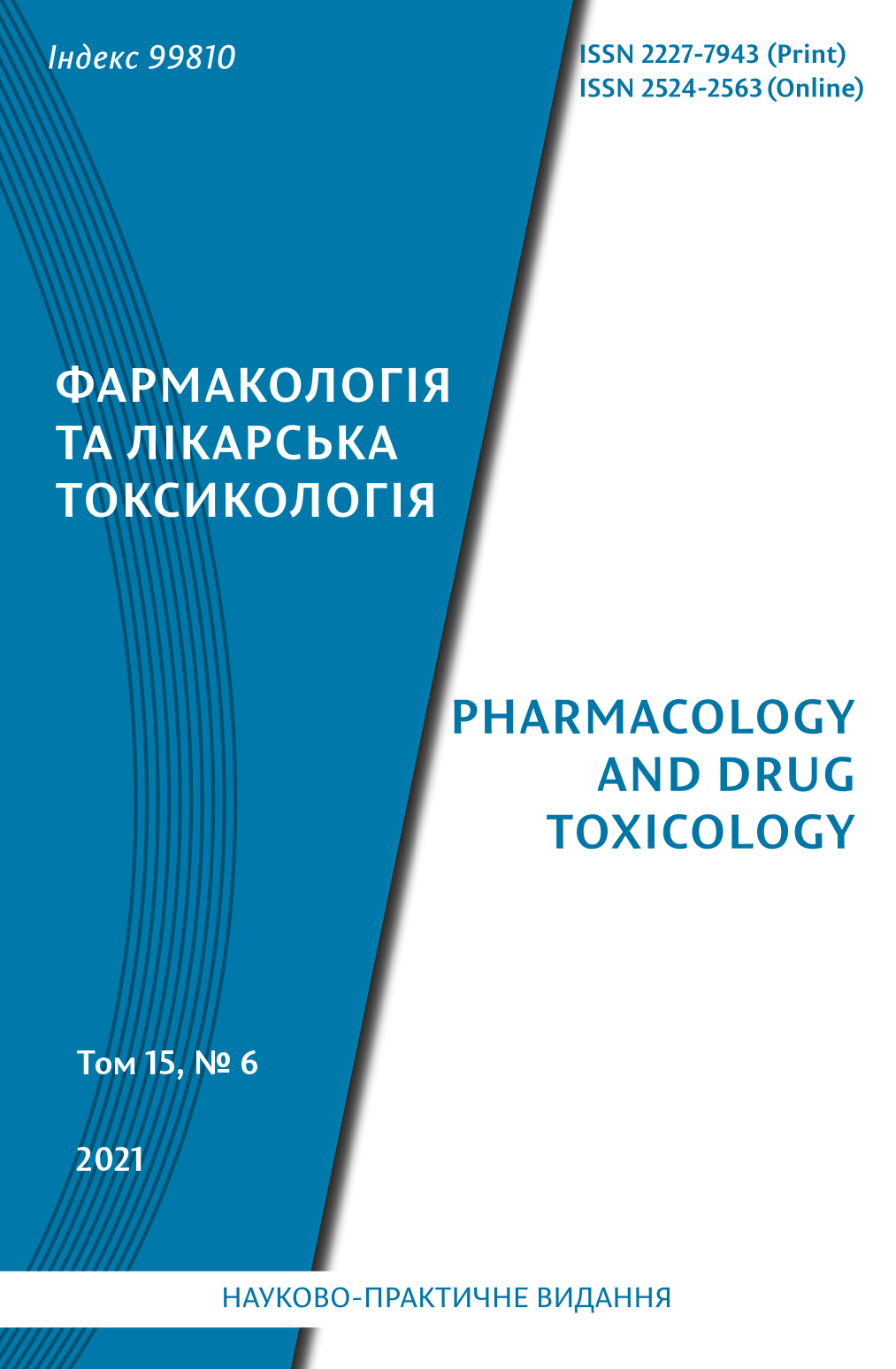Abstract
The article discusses the ability of NSAIDs, namely indomethacin, acetylsalicylic acid and meloxicam affect the content of MMP8 and HSP70 in the blood plasma of rats under their long-term administration.
Long-term use of NSAIDs, as known, leads to the formation of erosions, ulcers and various diseases of the stomach and intestines. It is suggested that these side effects are not only the result of the mucous membrane damage under the influence of NSAIDs, but also the possible action of NSAIDs on genes that regulate the cell cycle.
The aim of the study was to determine the content of MMP8 and HSP 70 in the blood plasma of rats after prolonged administration of NSAIDs and to evaluate their possible correlation with the ulcerogenic effect of these drugs.
The studies were carried out on 60 laboratory rats weighing 250–400 g, which were divided into four groups of 15 animals: 1 – control, animals were injected i. p. daily for 3 months with sodium chloride 0.9 %, 2 – rats were injected i. p. daily with indomethacin for 3 months at a dose of 0.6 mg/kg, 3 – rats were
injected i. p. daily for 3 months with acetylsalicylic acid for 3 months at a dose of 0.6 mg/kg and the 4 group – rats, which were injected i. p. daily with meloxicam at a dose of 0.1 mg/kg for 3 months.
It was found that long-term use of NSAIDs with the development of undesirable side effects, primarily ulcerogenic action, an activation of matrix metalloproteinase MMP8 occurs. There was a significant increase in the content of MMP8 in the plasma of animals treated with indomethacin by an average of 86%, acetylsalicylic acid – 79 % and meloxicam – by 66 %. An increase in HSP70 was also recorded in all groups.
Mathematical analysis shows the presence of a positive medium strenght correlation between these markers and the degree of gastrointestinal damage in rats.
The results obtained indicate a possible MMP8- and HSP70-mediated mechanism of ulcerogenic action of NSAIDs, which may also be a molecular chain of initiation of gastrointestinal oncogenesis.
